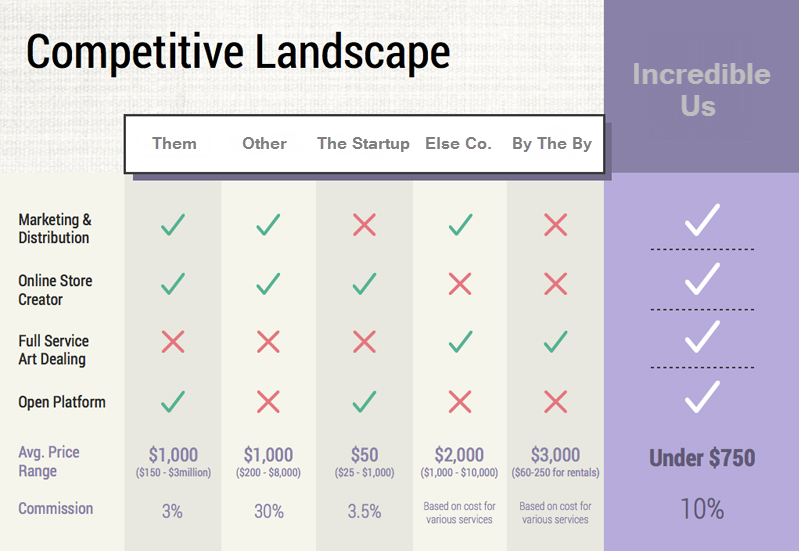
I’m realizing that I have a fetish for offering what seem to be contradictory points of view. In the world of entrepreneurship and our startup communities, one thing I’ve learned, certain with time, and it’s that the same advice, repeated ad nauseum, is helpful academically, to ensure everyone knows the fundamentals and tackles the basics, but when it comes to innovation, we must push people to think outside the box, not within it.
On a panel this morning, it was once again asked why founders struggle to raise money for ideas. And of course, the typical answer was repeated that ideas are worthless and that it’s all about execution.
Hearing it this time though, flipped a switch in my brain that made me react to that sage advice with a bit of revulsion.
Please, appreciate the point of it being said: no one funds ideas. And yet, entrepreneur communities, founders, and startups, indeed, our economy at large, suffers from a lack of ideas.
Ideas are precious and invaluable
And then it dawned on me, that contradictory fetish… I’m thinking ideas are precious and invaluable in the same breath that I just wrote Founders, it’s time for “the Idea” to die.
Both are true.
Are ideas valuable? Absolutely yes.
Most businesses, organizations, and even startups, are severely lacking creative and entrepreneurial people who quickly propose relevant ideas.
Have you ever tried to host a brainstorming session? Often, they’re aggravatingly frustrating, with most being:
- Incredibly quiet without many contributing
- Full of very old ideas
- Flush ideas known not to work
- Filled with commonplace ideas
Business thrives because of innovation and marketing. Competitive advantages. This REQUIRES informed and experienced ideas.
Lots of them.
Hundreds per day. Attempted, validated, discarded, and iterated.
Most businesses and executives SUCK at doing this.
It’s really almost depressing when you see a business struggling or closing and you talk to the team…
- Did you try…?
- What about…?
- Why didn’t you…?
Nope, nope, nope.
Ideas are the fuel of our economy and they’re a precious resource drawn from data (data being the [new] oil).
Now, here’s the catch…
Fuel, in and of itself, is rather worthless too.
In fact, refining oil (data) into meaningful ideas (fuel) is a waste of time and money if you don’t know what you’re doing.
Without a match… without an engine… fuel doesn’t ignite anything. You don’t go anywhere.
People don’t buy fuel to have fuel, they buy fuel because they need a car.
But that car you’re building, without ideas, won’t go anywhere.
Businesses without ideas are like people with matches trying to light a wet campfire. Striking, striking, and striking again. You have the stuff that’s valued (wood, matches) but you can’t do anything without a ton of work.
And then someone says, “want to throw some lighter fluid on there?”
The reason it’s said that ideas are worthless is because WAY too many people (founders and working professionals) want credit and to be valued, or funded, for an idea. That idea without a match is worthless. But a match without ideas is just as useless.
I want to invite you to join me in such discussions live and together.
Join me online here
[Image source: “Lit Match” by Vivere Exultantis, via Yvelle Design Eye]







Would it be more accurate to say very few ideas are “valuable”?
Kayee Tong nope. I’m not finding that true either.
All ideas spurn more ideas. That has value.
Ideas are poorly executed. Ideas are ignored. People undervalue ideas. Ideas aren’t validated or drawn from experience.
There are host of reasons that a great many ideas are less valuable (or a burden to a company) but they’re all valuable. The trick most founders miss (or dismiss) is that it’s a matter of determining and efficiently/effectively creating value with them; founders tend to think of what they’re doing as “the idea” – the one thing, that is being tested and proven.
That’s the wrong mindset. You don’t have “an idea,” you have a mission and a vision. Now churn through ideas as fast and meaningfully as you can.
Paul O’Brien would some ideas have negative value then? Since they can subtract from time and effort. Might be useful to define valuable
Just to be clear, I’m not saying every “bad” idea is necessarily “bad” and condemn it
Kayee Tong no, again, I don’t think so. I think the mistake we make in our economy is this incessant notion that ideas have no value.
The idea in and of itself can’t have negative value. Merely the uttering of it is valuable: communication, openness, informative, and fostering feedback.
Silence is worse.
What has negative value is the execution against ideas: * Founders that don’t know what they’re doing.
* Advisors that mislead
* Investors that misguide
* Lack of experience or marketing to know good ideas from bad.
And there! Your follow up comment. There are BAD ideas. Without question. Bad != no value nor even negative value.
overgeneralization is human nature for processing large amounts of data. Investors are no different. They see a few companies fail and make a general correlation that it must have been a bad idea. It’s also why actual disruptive ideas have less of a chance of getting off the ground, people put them into general categories and pass over them.
This is probably my new favorite post of yours, O’Paul
Having plentiful diverse ideas with decisive energy for execution is what I am hearing here. Ideas need cultivation to grow, execution needs decisions made to thrive. It’s almost symbiotic. This is my interpretation of the post.
I believe ideas have value if in the hands of people able to structure the right process to transform them in startups, by maximizing their potential and reducing risks.
I like to join teams in idea phase, if team members are humble, hard working, and determined to succeed, and we share the vision.
And true, a company must continue generating new ideas to keep the leadership in the market
Ideas are the fuel of innovation. Oh, let’s try this new application of XYZ and see what happens. It’s unimaginable to me that it wasn’t until the late 19th century that the safety bicycle was invented! One of the greatest innovations of all time, undiscovered in plain sight for centuries. The technology was there, it just wasn’t put together. What else is yet to be discovered?
love your content, paul!
Leah Marie Young Thank you. A lot. Pay it forward best we know how… I can type fast
i think we both straddle the texas / colorado startup scene
so always happy to read your content. relevant and well written ?
Leah Marie Young Oh do we now? I just got off the phone with Denver… lots of talk of tying the Austin Denver startup scenes together a bit more ?
Paul O’Brien could make sense! I’m sure you know better than me but they seem very different ? I’m from texas but I work for a Denver startup company out of the techstars network
Leah Marie Young indeed different but not more extremely so than LA, Silicon Valley, New York…
There’s a center-country network of cities that should work together more given similarities.
Well said Paul! Execution, product/market fit, and others are among the keys to success, but the idea, and the passion behind it, are conditions precedent to any successful startup.
Cheers James Earl Brown III. Let’s find a safe coffee and chat about it. Been too long ?
I think beyond ideas one needs insight – ideas are not necessarily tested against the marketplace, whereas insights are
Wonderful way of thinking about it Tan Jian Xiang , thank you!
So love this!
Ideas. Execute. Wash. Rinse. Repeat.
#startups #execution #musicstreaming
You’ve sparked a washing machine analogy that I’m going to have to get to writing up, as advice. Cheers Kevin King, thanks for sharing!